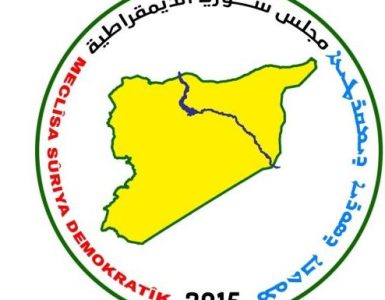By Thabet al-Jawher
Secretary-General of the Syrian Homeland Party
“Our homeland is the whole world. Our law is liberty. We have but one thought: revolution in our hearts”. Dario Fo, an Italian playwright, said. These inspiring words convey a profound sense of patriotism. We, as Syrians, must view these words not merely as eloquent phrases but as principles of action and goals. We need to explore inner thoughts and understand hidden meanings to overcome challenges together.
Patriotism is a concept closely related to identity and a sense of belonging. It expresses a sense of loyalty to a specific homeland. Fostering patriotism can play a crucial role in peacebuilding and stabilization in Syria. Syria has faced many challenges over the years, leading to its division. This fragmentation has been caused by various factors, including military control, political differences, and the influence of regional and international interests. All these factors have affected Syria.
Syrians strive to foster patriotism according to their various perspectives. Thus, this concept is dogmatic. Therefore, for Syrians, it is vital to strengthen national unity and reinforce the bonds among different social and ethnic groups. The goal is to achieve peaceful coexistence and sustainable development.
Goals of the Syrian Revolution may achieve in certain areas of Syria. However, the genuine Revolution should be based on believing in national thoughts. This is what Dario Fo meant and what was highlighted at the beginning of the article. Syrians need unity and reconstruction in Syria. Given the prolonged conflict and the involvement of various international and regional powers, they have faced immense challenges.
Due to the lack of genuine international support, Syrians need to depend on their unity and national pride. Patriotism also means accepting the various opinions based on the inclusive identity. it highlights the importance of legal protections for diversity and individual rights, emphasizing that these freedoms are fundamental and should be upheld by law as described by Dario Fo.
Also: Deir ez-Zor’s Inhabitants Strive to Build a Brighter Future for Syria
Based on this perspective, Syrians must consider pluralism and decentralization are among the key basics for achieving national unity in diverse contexts. Pluralism means recognizing the diversity of ideas, opinions, and orientations. It enhances national dialogue among different parties.
On the other hand, decentralization refers to the process of transferring authority and responsibilities from central government to local or regional levels. It enhances the ability of people to manage their affairs independently and encourage community participation. Certainly, it ensures that all concerned parties be engaged in comprehensive dialogue, including the Syrian government, opposition, and civil society. This dialogue must be based on recognizing the rights and interests of all Syrians without exclusion, disregarding, or disloyalty.
To achieve meaningful dialogue and resolution, it is essential to establish trust among the conflicting parties. Undoubtedly, it is a challenge for Syrians and a crucial matter. At the same time, this can be achieved through practical measures such as establishing joint committees and local cooperation projects.
Also: Causes and impacts of the Syrian Revolution
The concerned parties have failed in establishing what is called the Constitutional Committee to draft a constitution. The main factors leading to this failure are exclusion of parties, and the lack of trust among the concerned parties. This committee was a regional and international outcome that emerged from Sochi talks. Drafting a new constitution requires building trust among all Syrians. Also, it should be a comprehensive constitution agreed upon by all Syrians. Moreover, it should reflect Syrian pluralism, and ensure the rights of all groups. To guarantee Syrians’ rights, the constitution must include principles of decentralization and a genuine representation for all parties.
Syrians should initiate to engage in national dialogue without external regional and international interferences. The intra-Syrian dialogue aims at achieving pluralism and decentralization in effective and just ways. It will be the cornerstone of a comprehensive national dialogue. This dialogue will be based on building trust, developing a fair constitutional framework, reforming institutions, promoting a culture of tolerance, and addressing humanitarian issues.
Consequently, when Syrians make initiatives for a comprehensive national solution, stability, peace and patriotism will be achieved in Syria.




